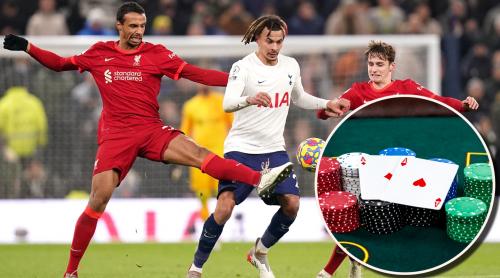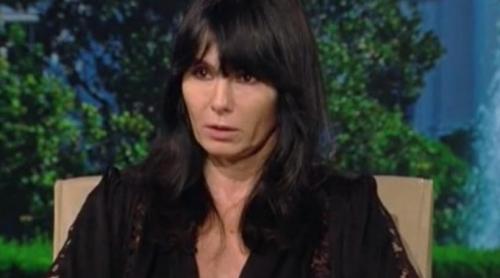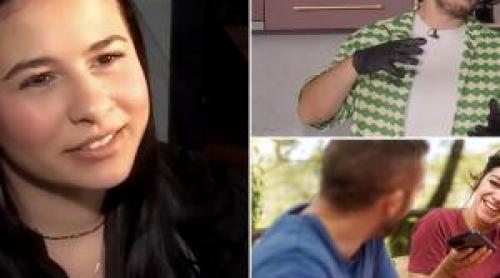During the meeting on the 21st of December 1989, when the Romanians in the country take part in the pig killing ceremony and their cousins in the cities "attack" the supermarkets, the Government decided for the initiation of the Institute for the Investigation of the Communismâs Crimes in Romania.
Since 1989, the Romanian communism has been the subject for many articles and researches. Notorious people - from Vladimir Tismaneanu to Lavinia Betea - have made synthesis about the entire communist period or about certain episodes or personalities of the regime, they went through the archives and discovered probatory documents. The success of such enterprises was caused by their assumed detachment. By this, by getting rid of the hysterical anti-communism in the first after-the-revolution years, the communism had to confront a strong hit.
Communism, like fascism, is not possible to happen any more and if we discover their main mechanisms, we discover their influence in the complex and contradictory reality, we emphasize their tricks with which they conquered a lot of people. Moreover, the autochthonous communism must be still studied with the instruments of science in nowadays Romania which is 16 years away from the end of the Ceausescu era and more than half a century away from the Stalinist terror stage. The main characters of the Dej-Pauker times are dead or some poor pensioned old people. Actually, the Romanian society has different targets now. A lot of people that lived during the communist regime are struggling to live from one day to another. The former activists and security members split forever. Some of them got rich. Others face a lot of problems. The newer generations see communism as a world far away in time. It is hard to suppose that a normal young man from the present would be interested in anyway in finding out who sent the people into the concentration camps. He is much more interested in finding out a way to leave the country as soon as possible.
Naturally, the Prosecutors had to take a closer on the communism. There have been a lot of crimes, abuses, and innocent people who were imprisoned during the 60 years of communism, especially in its first ten years. Unfortunately, this part of the communism has been seriously compromised by the excessive politicization. Denouncing the communist horrors was an instrument of the fight for Power in the after-the-revolution years. Ion Iliescu, as well as other activists have really been the target of the campaigns for denouncing the communism.
By NCDPP, the RDC (the Romanian Democratic Convention) regime made the violent anti-communism a target. And, since this regime was approached with a Taliban aggression, with an administrative disorder, investing communism from an angle similar to the one of the investigation of fascism has been seriously compromised.
Maybe Traian Basescu did see all of this and this is why he didnât rush into fulfilling the demands of several groups with an experience in the anti-communism of the first after-the-revolution years. These are groups that asked him to transform into a Victor Ciorbea of the 2005 Romania. There is a possibility that Traian Basescu was careful because of the fact that many Jewish international organizations in the world donât seem to like very much the idea that the Romanian communism is at the same level with the Romanian fascism. Actually, in the controversy regarding the Romanian Holocaust the supporters of Marshal Antonescu asked for the autochthonous communism to be convicted as well, saying that many of those that were sent in Transnistria were communists before being Jews.
The Government decision says clearly that the institute will take care of communismâs investigation using the formula of the Wiesenthal anti-Nazi Center. Therefore we have the sign of equality between fascism and communism! The main activity of the institute consists in identifying living guilty people, which are to be prosecuted.
Since he became the Romanian PM, Calin Popescu-Tariceanu looked like a communistsâ hunter. The detached approach to communism seemed to be the thing that differentiated the Allianceâs Governing from the RDC governing.
However, the PM decided for the initiation of an Institute for the Investigation of the Communismâs Crimes in Romania. This way, he takes the risk of being accused of:
-
distracting the attention from the investigation of the Romanian fascism and hitting the Holocaust thesis by that;
-
wasting the budget money, money that could have been used for other things;
-
initiating an institution parallel to NCISA (the National Council for the Investigation of the State Archives);
-
initiating an institution that belongs to the series of the meaningless institutions, because the institution needs cooperation from other institutions like NCISA, the National Archives, the Secret Services.
Why did PM Calin Popescu-Tariceanu take this risk?
This is another illegal attack against Traian Basescu.
The Presidentâs hesitation towards fulfilling the demands for an aggressive anti-communism brought reproaches from a minority of the present intellectuality, which is, however, very active.
By initiating the Institute, Calin Popescu-Tariceanu tries to get this minority on his side (by offering its members jobs in the Instituteâs structure), and, through it, a part of the RDC electorate.
Moreover, by pretending to be the ferocious anti-communist, the PM tries again to get rid of the accusations regarding him having an illegal cooperation with the SDP (Social Democratic Party).
Like in the first after-the-revolution years, the anti-communism is no more than an instrument of the fight for Power.
Translated by SORIN BALAN




















